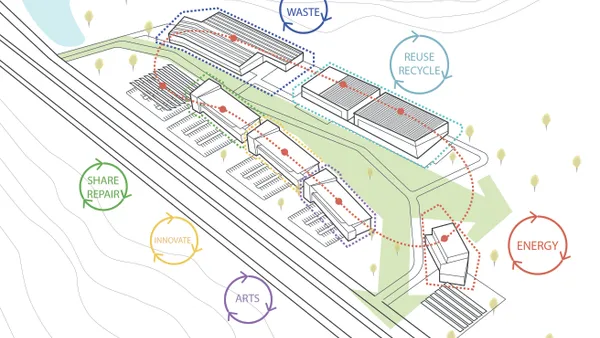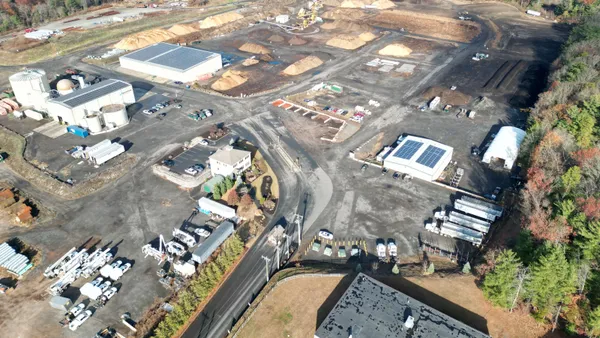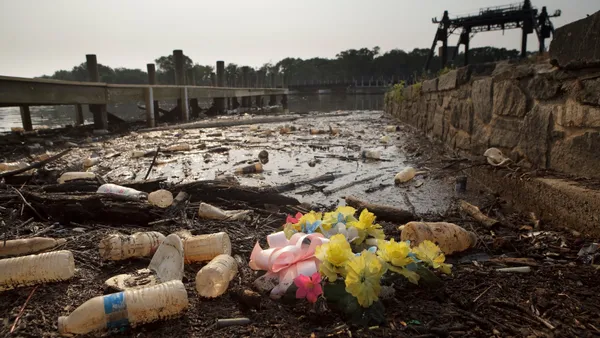Dive Brief:
- The Rhode Island Department of Environmental Management (DEM) has announced newly amended regulations for composting facilities and food waste recycling.
- Small-scale operations can have up to 25 cubic yards of material on site and don't need to register with DEM. Medium-scale operations can have up to 600 cubic yards of material and must register with DEM using a one-time form. Large-scale facilities with more than 600 cubic yards of material must renew their registration every three years.
- DEM worked with the Rhode Island Food Policy Council to develop the regulations for small and medium operations. New categories were also included to promote small-business growth and community composting. The state now has a permitting process and standards related to anaerobic digesters for the first time.
Dive Insight:
These new regulations come after the state's composting law took effect on Jan. 1. While not as strong as some had hoped, the law requires institutions which generate more than two tons of organic waste per week to divert it for composting. K-12 schools are exempt and the law only applies if a composting facility is within 15 miles.
As reported by NPR, the state currently has one commercial composting facility. Local residents have also been establishing their own drop-off programs in places such as Providence and one collection company, The Compost Plant, has been successful. Community composting is expected to grow now that these new regulations clarify the rules for small-scale operations.
Rhode Island has been active on other waste-related issues this year. State-level EPR legislation on printed paper and packing is currently under consideration, which would be among the strictest in the country. Last month, Rhode Island also became the first state to adopt Recycle Across America standardized labels for bins.












